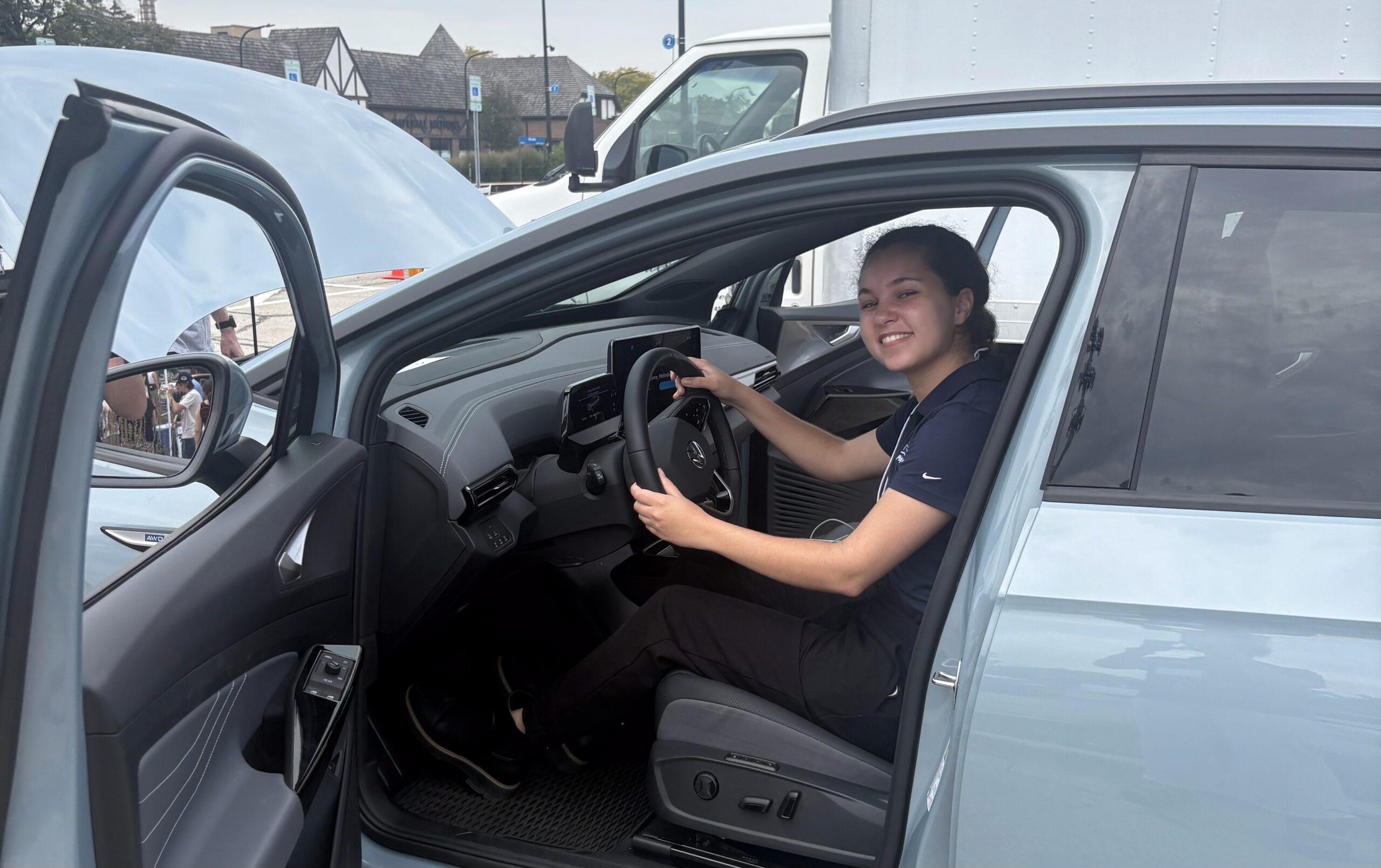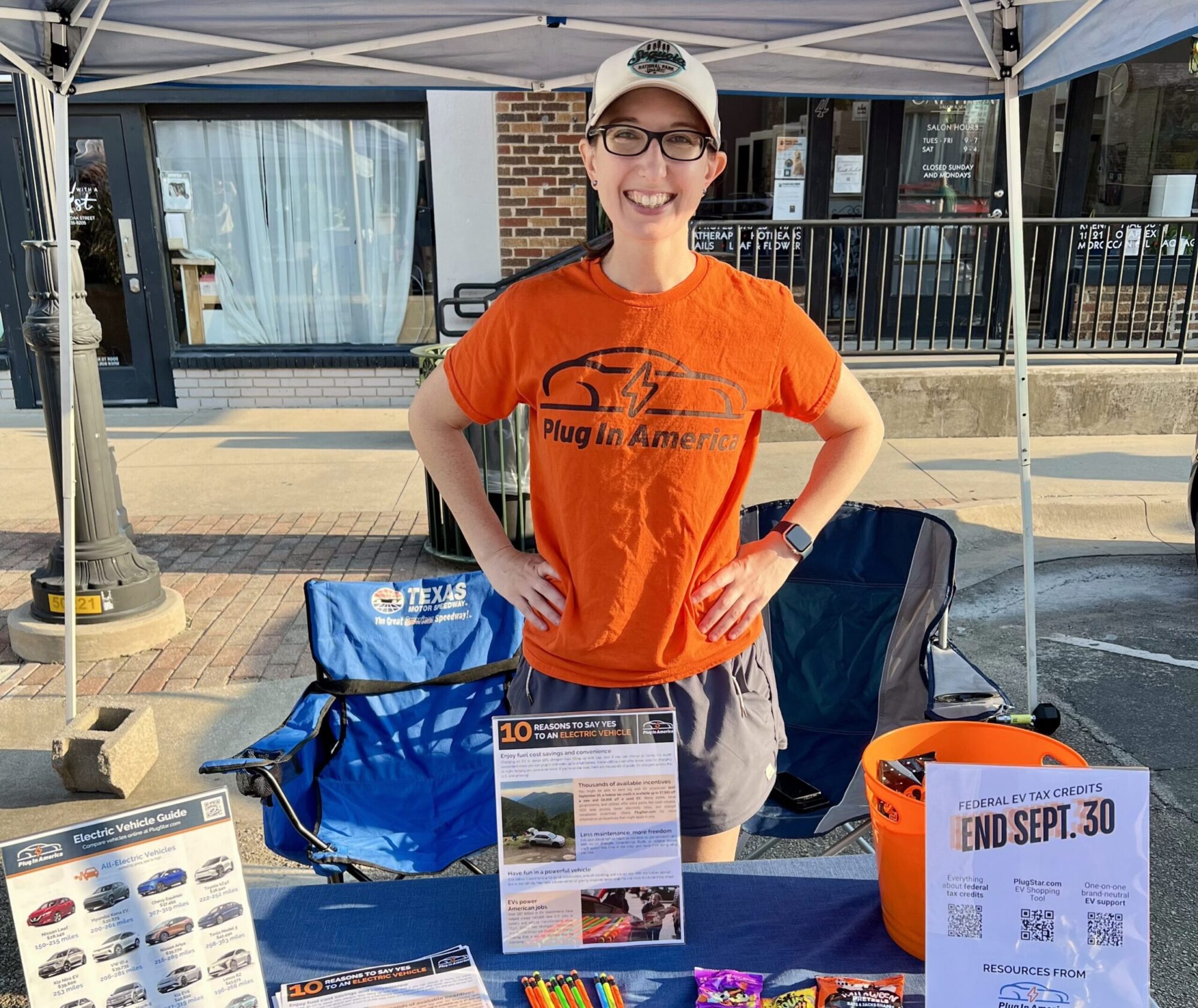
On Monday, September 24, EV drivers and Plug In America gathered in Fresno, CA to rally against the Environmental Protection Agency and Department of Transportation proposal to roll back the clean car standards and attack the single largest policy driver of EV sales today, in advance of the public hearing on the proposal.

EV drivers from Fresno, Bakersfield, Sacramento and the Bay Area wrapped the streets surrounding the public hearing building with their clean cars. Plug In America recalled the days when activists held rallies to prevent the EV1 from being crushed with chants such as, “Clean Cars! Clean Air!” and “What do we want? EVs! When do we want them? Now!” A big thank you to all the EV drivers who came out in support! (To view video of the rally, visit The Fresno Bee.)

Plug In America’s testimony read at the public hearing in Fresno is below. Additional hearings were held in Dearborn, MI and Pittsburgh, PA last week. We will also be submitting full comments before the October 26 deadline. If you haven’t yet signed the petition to defend the EV, please do so now and spread the word!

*******
Good morning, my name is Katherine Stainken, and I’m the policy director with Plug In America, a non-profit that represents the voice of the plug-in electric vehicle driver in California and across the country. Thank you for the opportunity to comment today.
On behalf of the nearly 1 million EV drivers on the roads in America today, we strongly oppose the Safer Affordable Fuel Efficient (SAFE) Vehicles Proposed Rule for Model Years 2021-2026. Not only does this new proposal lead to increased pollution from tailpipes, and thus poor air quality and increased health risks, but the proposal to revoke the authority states have to set their own strong limits on tailpipe pollution would undermine the growth of the electric vehicle market and slow adoption of these clean vehicles.
Plug In America stands here today to defend clean air, national security, public health, the global climate, and American competitiveness and innovation from the devastating effects your proposal would have. Weakening these vehicle standards would completely undermine the global competitiveness of the U.S. auto industry and stifle innovation at a time when the rest of the world is moving away from polluting vehicles. The largest auto markets in the world are moving towards cleaner, more efficient vehicles, including China, India and countries in Europe. In fact, some countries are considering or have implemented bans on gas cars in favor of electric vehicles.
Your proposal also threatens to revoke the authority that states, like California, have to set strong standards for itself and the 12 other states plus D.C. that follow California’s rules. Revoking this authority doesn’t help anyone, it just hurts the American people. In fact, Southern California just had 87 days of smog, the longest streak of bad air in decades. California absolutely needs to be able to examine its own air quality and set tailpipe standards specific to the state’s needs.
You also state in your proposal that the zero emission vehicle standard is inconsistent with section 202(a) of the Clean Air Act because it is technologically infeasible with not enough lead time to permit the development of necessary technology. Those 1 million American electric vehicle drivers that we represent would like to tell you that the last time we checked, our electric vehicles are indeed technologically feasible and work just fine—in fact, better than gas cars. Electric drive technology is nothing new, in fact it has been around since the mid-1800s. Every automaker has at least one, if not multiple, makes or models of an electric vehicle on the market today.
Your proposal runs counter to what Americans actually want. Americans want clean air. Americans want clean cars. In the first half of 2018, sales of light-duty electric vehicles were up 40% over the previous year, which is phenomenal growth. So I’ll say it again, Americans want clean air. Americans want clean cars. We strongly oppose the Safer Affordable Fuel Efficient Vehicle proposed rule.

